
California fawn lily, Erythronium californicum, California Stock Photo Alamy
California fawn-lily Bulbs ovoid, 35-60 mm, sometimes producing sessile offsets. Leaves 7-18 cm; blade distinctly mottled with irregular streaks of brown or white, oblong to narrowly ovate, margins usually wavy. Scape ± reddish, branched well above leaves when flowers more than 1, 10-30 cm. Inflorescences 1-3-flowered.

A beautiful native wildflower California Fawn Lily, and an oldgrowth Redwood stand
Erythronium grandiflorum, or glacier lily, with gorgeous yellow flowers, is also found in alpine and subalpine meadows and does best at those elevations. E. hendersonii (Henderson's fawn lily) occurs at low to mid elevations in the Siskiyou Mountains of southwest Oregon, while E. elegans (Coast Range fawn lily) is a threatened species that.

Sierra Fawn Lily (Erythronium multiscapideum) Wildflower Pictures Wild Macro Stock Photography
Erythronium californicum is a BULB growing to 0.3 m (1ft) by 0.1 m (0ft 4in). It is not frost tender. It is in flower from April to May, and the seeds ripen from June to July. The species is hermaphrodite (has both male and female organs). Suitable for: light (sandy) and medium (loamy) soils and prefers well-drained soil.

Pin on Botanical
Erythronium californicum, the California fawn lily, is a species of flowering plant in the family Liliaceae, endemic to moist woodland habitats in the mountains of Northern California . Description It is an herbaceous hardy perennial growing from a pointed bulb 3 to 6 cm wide and producing two basal leaves which are sometimes spotted with brown.
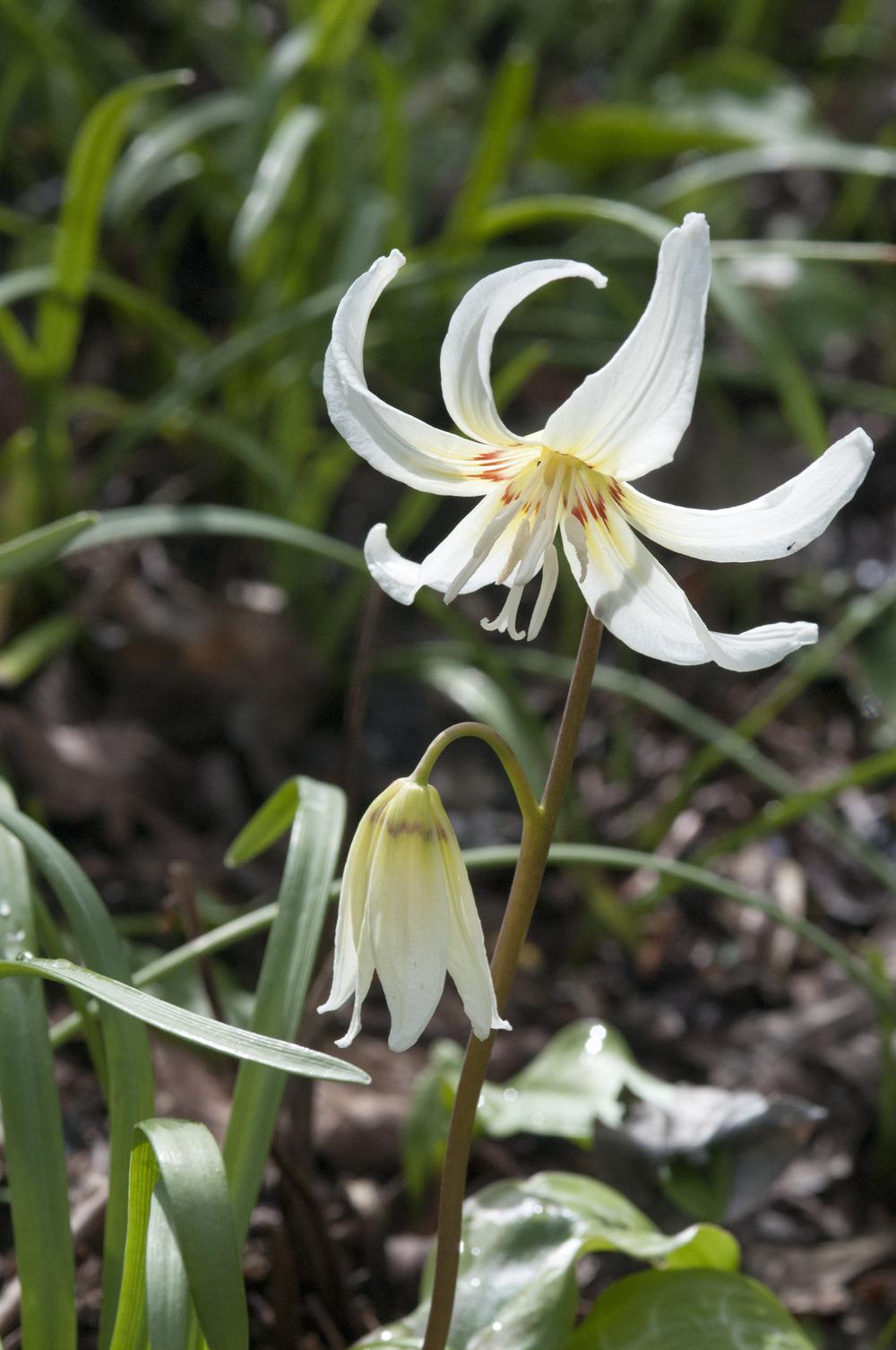
Photo of the entire plant of California Trout Lily (Erythronium californicum 'White Beauty
California is blessed with many lilies. There is hardly a place in California where a lily cannot be found, but while all belong to the Lily Family — corn lily, desert lily, adobe lily, fawn lily and mariposa lily — most are not true lilies.
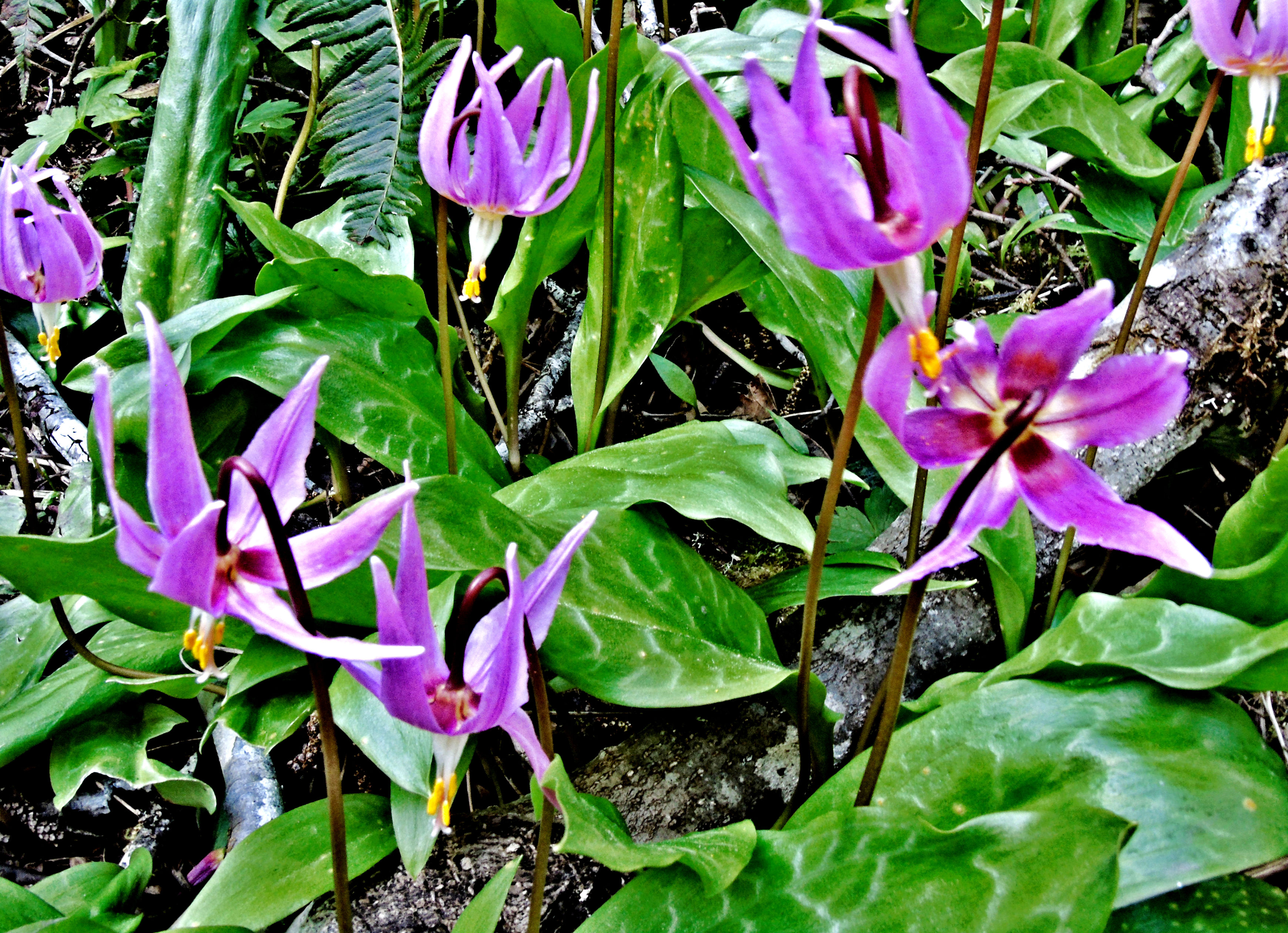
1006 Pink Fawn Lily Piece by Piece Puzzle Company
Erythronium californium is a herbaceous perennial bulb native to Northern California. I took these photos in Lake County where the highly scented flowers appear in full bloom at the end of February through March. numbering in the many thousands. The bulbs, along with many other regional species, w

Fawn Lily One of the California fawn lilies (or dogtooth v… Flickr
California Fawn Lily may have difficulty thriving, and will drop leaves 🍃, without ample sunlight. Place it less than 3 feet from a south-facing window to maximize the potential for growth. Select your region to see how the current weather in your area affects the placement of California Fawn Lily in your home 🏡.

Sierra Fawn Lily (Erythronium multiscapideum) Wildflower Pictures Wild Macro Stock Photography
Nurseries Carried by 3 Sunset Zones? 3*, 6*, 7*, 15*, 16*, 17* Natural Setting Climate Annual Precipitation: 19.3" - 79.8", Summer Precipitation: 0.34" - 2.01", Coldest Month: 35.3" - 52.0", Hottest Month: 61.2" - 75.7", Humidity: 1.34" - 25.40", Elevation: 36" - 4920" Alternative Names Common Names: Adderstongue, Sierra Fawnlily
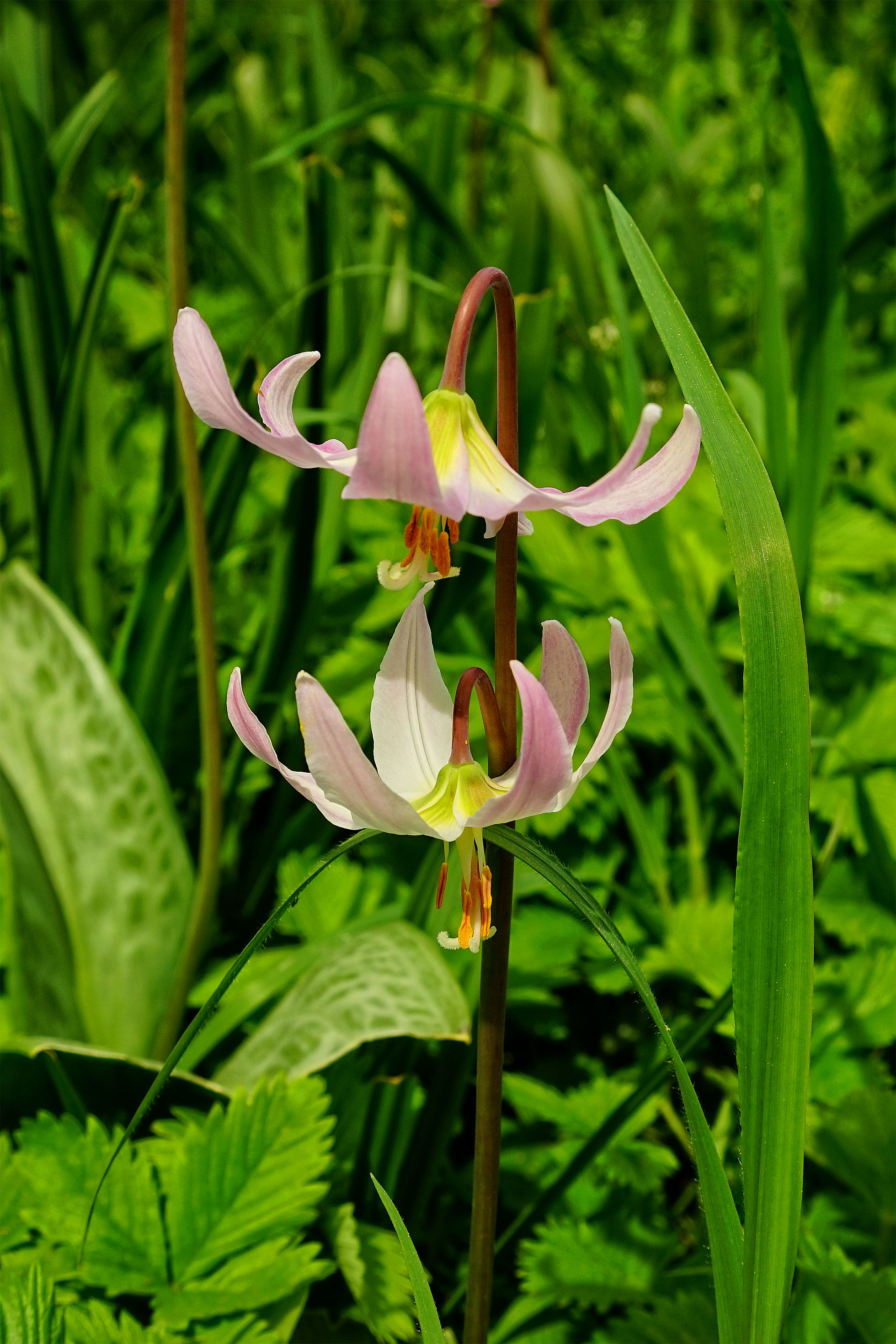
Victoria Daily Photo Pink Fawn Lily
Award-winning Erythronium californicum 'White Beauty' (Fawn Lily) is a vigorous perennial boasting up to 10 graceful, creamy-white flowers per stem in mid to late spring. Relatively large, each blossom, 2 in. across (5 cm), features elegantly recurved, pointed petals and cinnamon-orange markings in the throat. They rise well above the foliage of rich green, elliptic leaves, softly mottled with.

Photo of the entire plant of California Trout Lily (Erythronium californicum 'White Beauty
More Taxa Info; Guides; Places; Site Stats; Help; Video Tutorials; Log In or Sign Up

Erythronium californicum California Fawn Lily Erythronium … Flickr
Erythronium californicum, the California fawn lily, is a species of flowering plant in the family Liliaceae, endemic to moist woodland habitats in the mountains of Northern California. Read More on Wikipedia. Your Checklist. You have noted 0 California Fawnlilies.

Photo of the entire plant of California Fawn lily (Erythronium californicum 'White Beauty
How to Care for California Fawn Lily It is an herbaceous hardy perennial growing from a pointed bulb 3 to 6 cm wide and producing two basal leaves which are sometimes spotted with brown. The reddish-green stalks grow up to 30 cm tall and each bears one to three nodding, slightly scented flowers in spring.

Sierra Fawn Lily (Erythronium multiscapideum) Wildflower Pictures Wild Macro Stock Photography
Jepson eFlora. [Wikipedia] Habitat, Range, Description: Erythronium californicum, the California fawn lily, is a species of flowering plant in the family Liliaceae, endemic to moist woodland habitats in the mountains of Northern California. Description It is an herbaceous hardy perennial growing from a pointed bulb 3 to 6 cm wide and producing.
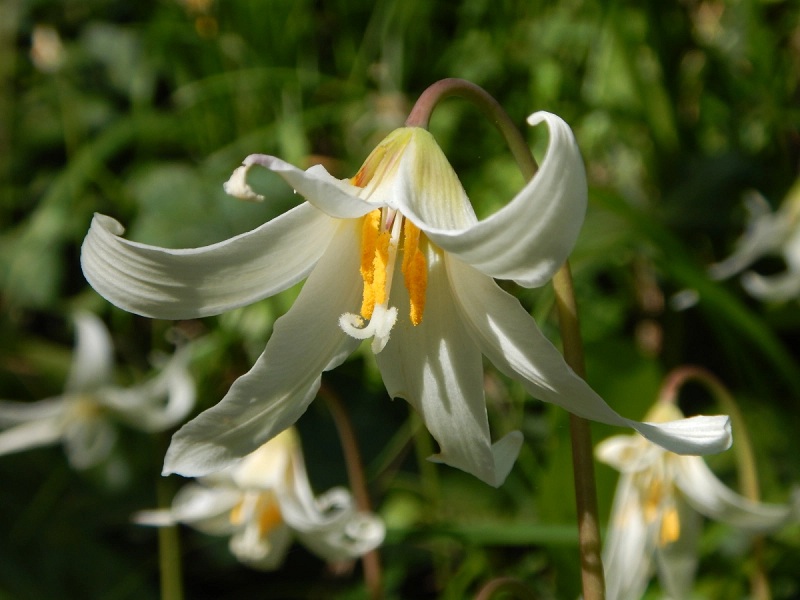
Esencia Floral de Fawn Lily (Lirio Cervatillo)
Erythronium purpurascens is a perennial herb (bulb) that is native to California, and endemic (limited) to California. This plant is available commercially. Jepson eFlora. [Wikipedia] Range: Erythronium purpurascens is a species of flowering plant in the lily family which is known by the common names purple fawn lily and Sierra Nevada fawn lily.

CALIFORNIA FAWN TROUT Lily Wildflower Erythronium Californicum Etsy in 2021 Trout lily, Wild
The giant fawn lily adds a delicate accent in the spring to the bright shade garden featuring starlike flowers of creamy-white with yellow centers. Reaching to a height of about 1 ft when in bloom with low, broad leaves attractively mottled.. Specializing in California native plants and habitat gardening since 1981 (707) 528-8813 • 2990.
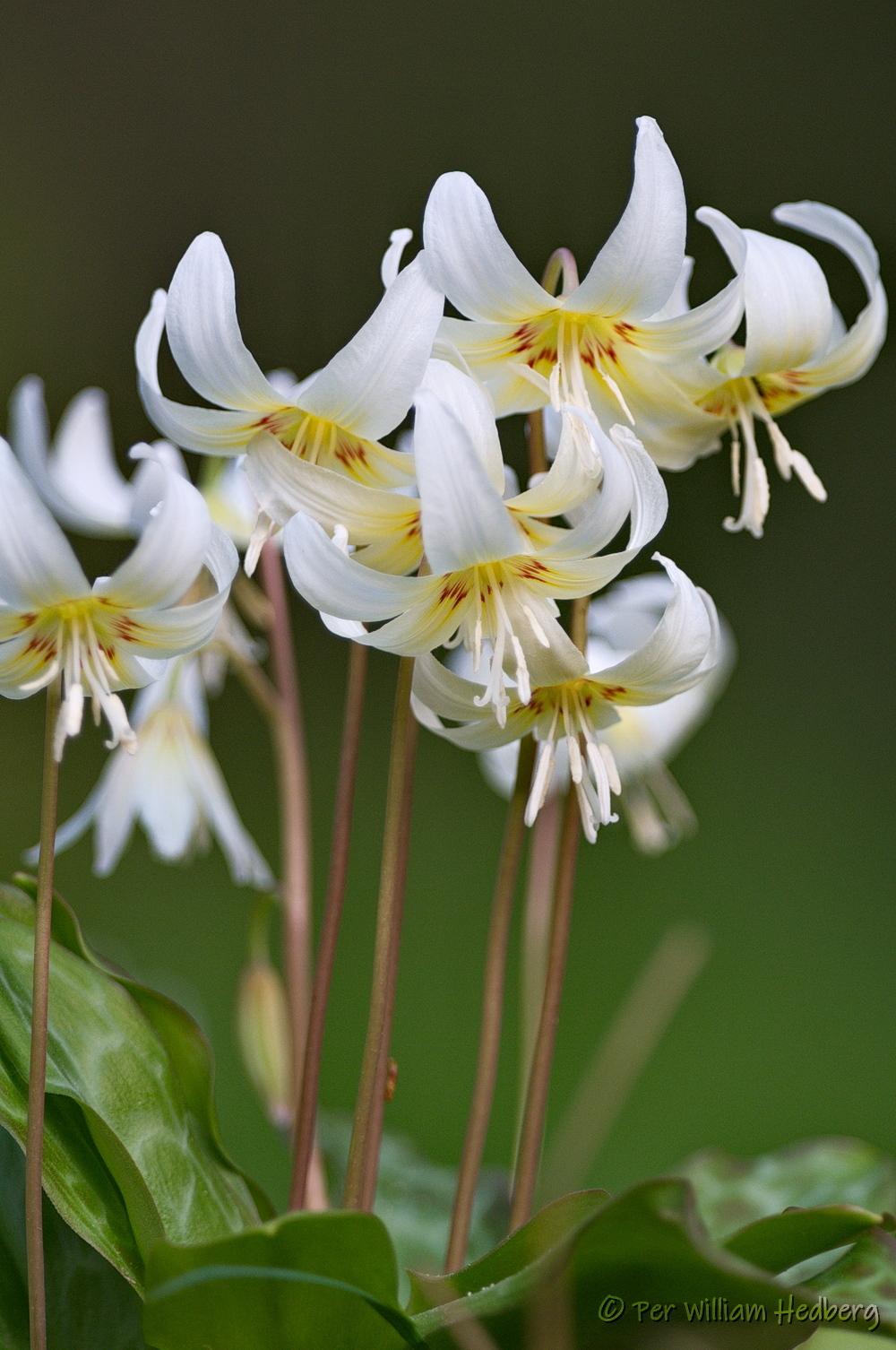
Photo of the bloom of California Trout Lily (Erythronium californicum 'White Beauty') posted by
Erythronium, the fawn lily, trout lily, dog's-tooth violet or adder's tongue, is a genus of Eurasian and North American plants in the lily family, [2] [3] [4] [5] [6] most closely related to tulips. [7] The name Erythronium derives from Ancient Greek ἐρυθρός ( eruthrós) "red" in Greek, referring to the red flowers of E. dens-canis. [7]